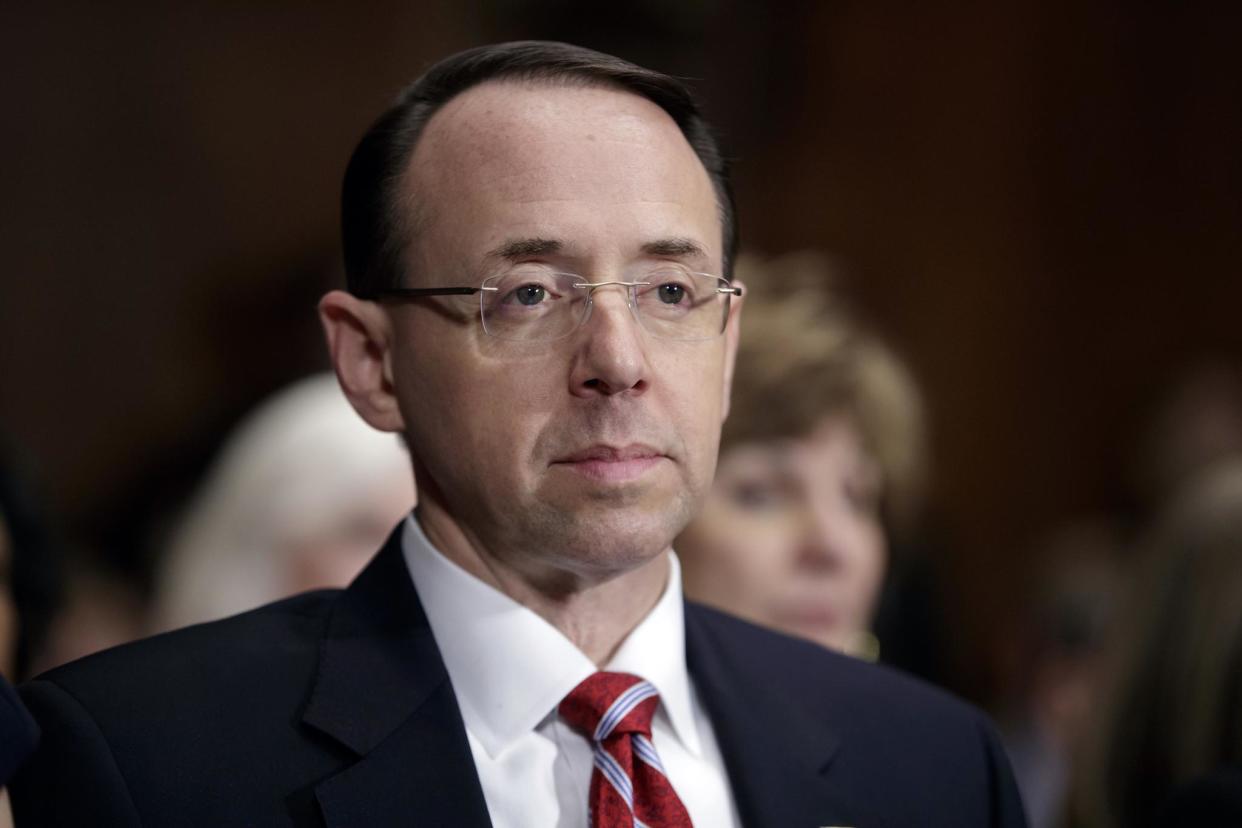Trump's Deputy Attorney General may also recuse himself from Russia investigation, say reports

Deputy Attorney General Rod Rosenstein has privately indicated that he may need to recuse himself from the probe into Russia's influence on the 2016 US election, which would make him the second top tier law enforcement official to do so.
Mr Rosenstein reportedly told Associate Attorney General Rachel Brand that she would have authority over the probe if he were to remove himself from the investigation.
His boss, Attorney General Jeff Sessions, recused himself from the Russia investigation earlier this year. Mr Sessions said later during testimony before the Senate Intelligence Committee that he had done so because he was involved with Donald Trump's 2016 campaign, not because he had done anything wrong.
Until Mr Rosenstein decides to formally recuse himself from the matter he has the ultimate authority over the special counsel he appointed to investigate any possible collusion between the Trump campaign and Russia, and the extent of Russian meddling in the election overall. That means that he has the final say on resources, personnel, and potential prosecutions.
The deputy attorney general encountered controversy last month when the White House credited a memo he wrote as a primary reason Mr Trump fired former FBI Director James Comey. The President later indicated, however that he had decided to fire Mr Comey with or without approval from the Justice Department, and said in a nationally televised interview that the Russia probe was part of his rationale for the sacking.
Mr Rosenstein's potential recusal shows that the Russia probe is widening. The investigation now reportedly includes the President himself, after Senate testimony by Mr Comey indicated that he had tried to get him to drop an investigation into former National Security Adviser Michael Flynn's Russia connections.
Mr Flynn was forced to resign less than a month into Mr Trump's presidency over concerns that he had misled Vice President Mike Pence about the content of conversations he had with Russian officials during the transition period. Mr Flynn reportedly told Mr Pence that he hadn't discussed US sanctions imposed on Russia as a result of 2016 meddling, but he had.
Mr Trump also repeatedly tried to convince Mr Comey to publicly state that he was not being personally investigated in the Russia probe, which he declined to do. At the time, he was not under investigation but Mr Comey's revelations prompted an investigation to be started - which Mr Trump has acknowledged in Twitter posts.

